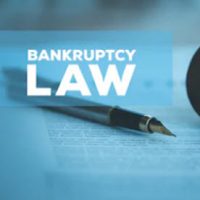5 Things to Know Before Filing for Bankruptcy

Filing for bankruptcy is an option many people dread. However, for many consumers it is the most sensible option. Filing for bankruptcy protection grants a consumer immediate protection from any collection actions, such as lawsuits on unpaid debts or eviction actions. Depending on the bankruptcy you file, you might also be able to eliminate some or all of your debt.
At Nowack & Olson, we understand how stressful the current economic situation is for most people. We present 5 facts that people need to know before they file for bankruptcy.
There is More than One Bankruptcy
Consumers typically choose between two different bankruptcies, Chapter 7 and Chapter 13. Chapter 7 is the quicker of the two. You can eliminate qualifying debts in a matter of months. With a Chapter 13, by contrast, the debtor must come up with a payment plan that lasts 3-5 years, during which the debtor must use their disposable income to pay creditors.
Not All Debts Can Be Eliminated
Bankruptcy is good at getting rid of certain unsecured debts. A secure debt, like your home mortgage, cannot be discharged. The bank will always retain its security interest, which means it can foreclose on you if you don’t pay.
Unsecured debts are things like credit cards, personal loans, and medical bills. If somebody got a court judgment against you, then you might be able to eliminate that, also.
Certain unsecured debts, however, can’t be eliminated. You will never be able to wipe out unpaid child support or alimony. Also, it is very difficult (though not impossible) to discharge student loan debt.
You Don’t Have to Be Unemployed to File
People who are still working can file. However, you might be limited to which bankruptcy you can proceed under. Chapter 7, specifically, has a means test. If your income is under the state median for a family of your size, you automatically qualify. Others might qualify depending on their expenses. If your income is too high, then Chapter 13 might be the only option.
The Trustee Can Claw Back Property or Cash Transfers
If you file for Chapter 7, then the trustee can take any property that isn’t exempt. Fortunately, Florida exempts the full value of your homestead in most situations. But the trustee could take your car, a vacation property, and even cash in the bank if you can’t exempt them.
The trustee is also empowered to void any transfers. So if you quickly sign your car over to your sister before filing, the trustee can get the vehicle. You should meet with a South Florida bankruptcy lawyer today to discuss whether you will lose property. A person who files Chapter 13 does not lose any property, so that might be a better option.
A Lawyer is a Big Help
Some people unfortunately try to file for bankruptcy on their own. This is a mistake. You might forget something or fill out your forms wrong. The rate of a successful discharge is higher for those who hire lawyers to represent them.
Contact Nowack & Olson PLLC today at 888-813-4737. Our Plantation bankruptcy lawyers will be glad to meet for a free consultation to help you think through the best steps to take.
https://www.floridabankruptcynow.com/how-is-congress-helping-student-loan-borrowers/
